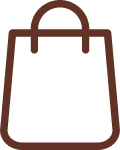With the recent shift in pop culture bringing breastfeeding to light more than ever before, and the legislation that made breastfeeding in public legal in the U.S., Imalac is making efforts to contribute to the movement as well. Imalac aims to educate, empower, and enable moms to breastfeed up to and beyond the baby’s first year.
As a result, we are presenting a new blog series called “Getting Real About Breastfeeding,” which is made up of Imalac’s interviews with real moms sharing authentic stories from their individual nursing experiences. We are building a community of support through this series that is curated by women for women, in order to broaden the conversation around breastfeeding.
Imalac will be making an even larger impact at CES 2019 with the live debut of Nurture by Imalac, a breast massage system for nursing and pumping moms.
Meet The Moms
Autumn Wake is a mother of two, a son and daughter, living in Nevada. She works as an International Board Certified Lactation Consultant (IBCLC), which is the highest credential in the lactation field, and owns a private practice. She is a volunteer for the Southern Nevada Breastfeeding Coalition (SNBC) and also uses her certification to help new moms through her personal YouTube channel, which touches base on all topics related to breastfeeding.
Autumn Wake and her family
Rachel Irving has two children and works as a nurse, as well as a Certified Lactation Counselor (CLC). She has volunteered for the Southern Nevada Breastfeeding Coalition (SNBC) since seeking help after having her first child in order to advise other moms, giving them the tools needed to succeed in their own journey.
The Southern Nevada Breastfeeding Coalition (SNBC) is an organization based in the metropolitan area of Las Vegas that inspires, educates and builds community support to make breastfeeding the norm for infant feeding in Nevada.
Rachel Irving and her family
Q&A
Q: How did you know breastfeeding was something you wanted to do?
Autumn – I was influenced by my family, as my mother breastfed me and I felt there was no other option to feed my baby. I also know breast milk is the best source of nutrition, so I wanted to make sure my children received the same benefits that I did.
Q: Did you ever feel pressured to solely breastfeed?
Rachel – I never felt pressured to breastfeed from other people, however being a nurse I have witnessed how others have been judged or pressured. This experience encouraged me to do my research beforehand. When I first started breastfeeding, the pain was so unbearable, I found myself crying every time. I did not find help as early as I should have, but after meeting with a CLC and taking the time to heal, I was finally able to comfortably feed my baby. I like to think that if it wasn’t for my initial dedication, I wouldn’t have been able to end up breastfeeding my children at all, or donate to those local families in need.
Q: Describe any challenges you faced while trying to breastfeed, particularly any struggles that new or expectant moms should be familiar with.
Autumn – Breastfeeding was challenging, physically and emotionally. After my daughter was born, I did everything by the book and it turned out she was not getting enough milk. She ended up in the NICU with dehydration on her third day of life and later on we found out it was due to her having a tongue tie.
In addition, I had two breast surgeries within 6 months of her conception, and the IBCLC suspected that there was an 80% chance that I would not produce enough milk to breastfeed my daughter. I was devastated, but I knew this was something I wanted to do. Luckily after getting my daughter’s tongue tie fixed, pumping and continuing to work with the IBCLC, I fought to increase my milk supply so I was able to breastfeed.
Breastfeeding was the hardest, but most rewarding experience I have ever gone through. I also found my new passion: helping other families. Today, I own a private lactation consulting practice to assist moms in the Las Vegas area.
Q: Have you received any backlash from feeding in public?
Rachel – There was one time at my child’s swim class that a worker asked me “to do that” in the bathroom, per the supervisor’s orders. He couldn’t even say the word. I asked to see the policy in writing, at which the supervisor admitted that it really wasn’t a policy but next time I’d want to do that “more discreetly.” In that moment, I began to question myself and what was allowed, even though I knew the law was on my side.
Q: Tell us the best experience you’ve had while breastfeeding.
Autumn – I was at a concert rocking out when I had to start pumping using my hand pump, so I put on my cover on and a stranger came up to me and said, “I know what you’re doing under there. You’re amazing!” That kind of emotional support, even from strangers, was a great and beautiful thing!
Q: What would you tell new moms about the importance of having a stable support system when you’re breastfeeding?
Rachel – Find your village before having your baby! Having that close support system for women is essential. If a significant other or loved one is constantly helping, it can instantly boost your morale and confidence.
Q: What is your stance on breastfeeding in public becoming legal in the U.S.?
Autumn – It took way too long, especially in the state of Nevada. I actually testified to push the Nevada Assembly Bill, AB113, which requires employers to make certain accommodations for a nursing mother. It was the first time I had done something like that, and it was a once in a lifetime experience.
Q: What do you think is the next big thing in the world of breastfeeding and nursing?
Rachel – Change is required. I hope to see innovations that provide easier access to donor milk banks and that increase promotion in the normalization of sharing human milk. As a donor mom, my passion is saving the lives of immunocompromised and premature babies, and all the other children who need breast milk.
To follow along our CES journey and learn about our collaboration with Autumn Wake and Rachel Irving from the Southern Nevada Breastfeeding Coalition (SNBC), connect with us on Twitter, Facebook and Instagram.



